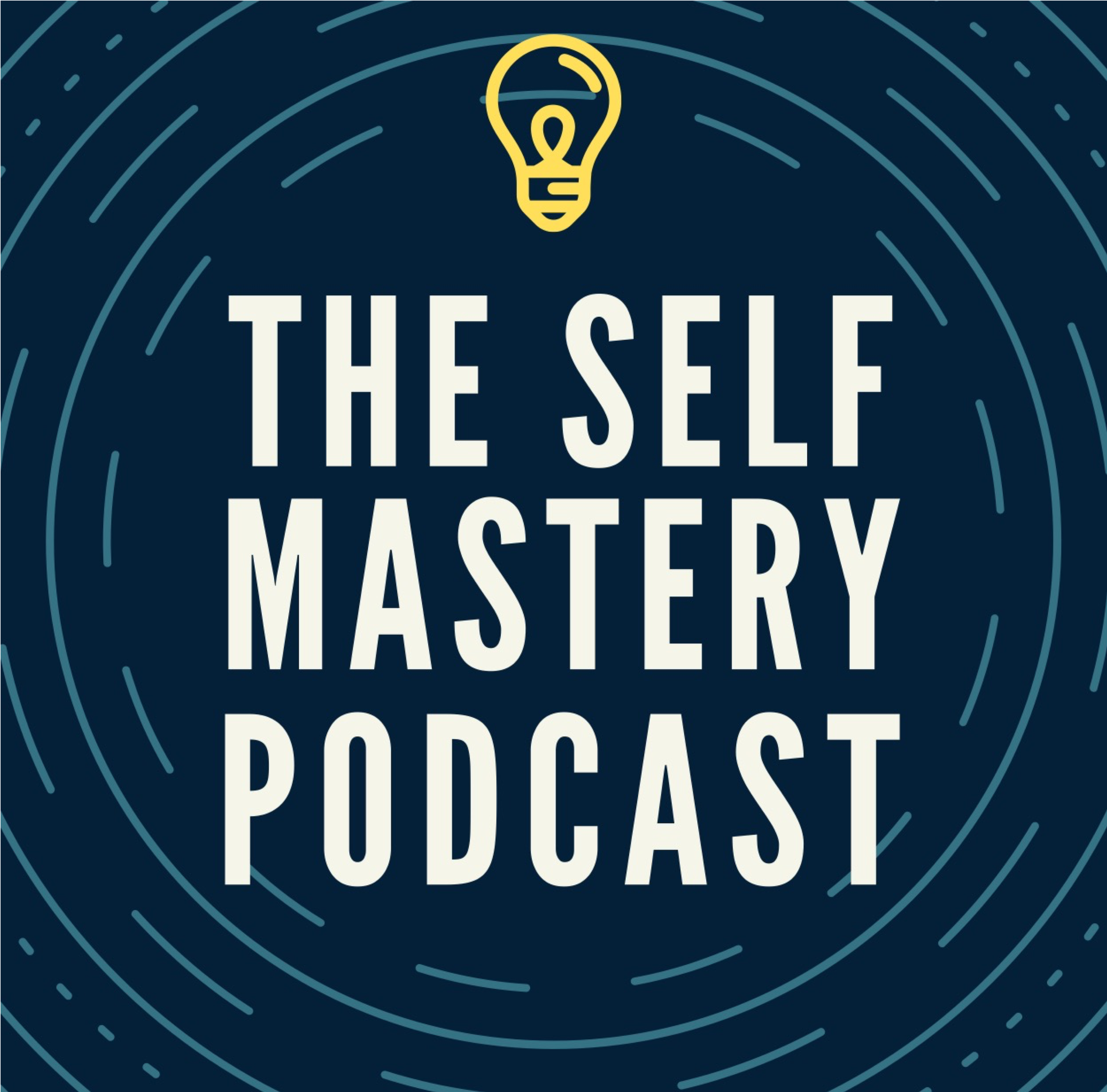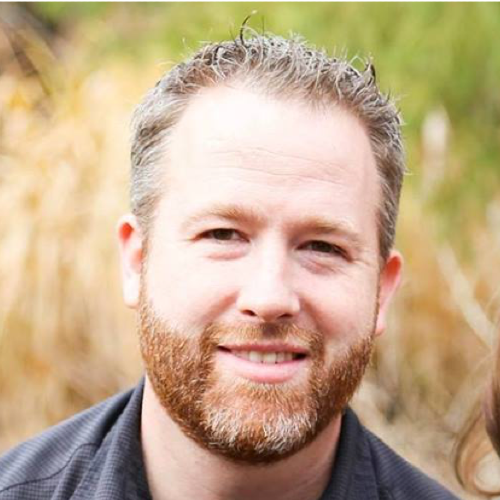Mastering Mindfulness to Overcome Pornography For Good
Learning to Thrive Beyond Pornography use was the greatest challenge of our life and marriage. It had rocked my self confidence, tainted all of the most important experiences of my life and become the most impossible challenge I had.
With this podcast or at https://www.GetToThrive.com you'll learn about the struggle, how to overcome pornography use, and where to find additional resources to begin to thrive beyond pornography with your spouse.
At some point I took a step away from all the 12 step meetings and councilors and started to figure out my own brain, to look at my issue as something that I had the answer to and I was going to figure it out. Here I share those lessons and give you the power to start your own journey free. Whether you struggle with unwanted pornography use or are the spouse or partner, whether you feel stuck or just don't know where to start, here I will teach you principles, tools and skills that you can use today to change how you think and, in the end, what you do.
You'll hear interviews with my spouse, with experts on human sexuality and with former and current pornography users on how you can overcome your own struggle with addictive behavior.
The Thrive Beyond Pornography podcast will bring new perspective to your struggle and keep you coming back to improve all aspects of your life. (formerly, The Self Mastery Podcast: Overcome Pornography Forever)
Transcript
episode 250
===
[:I wanna start with the basics of mindfulness. Mindfulness is the practice of intentionally focusing our attention on the present moment while calmly acknowledging and accepting our feelings, thoughts, and bodily sensations.
This involves cultivating a heightened awareness of the present experience without judgment. And this practice can be developed through various techniques such as meditation, breathing exercises and mindful movement. The key principles of mindfulness include presence.
So being fully aware and fully engaged in the here and now, rather than dwelling on the past or worrying about the future. A lot of people spend a lot of time thinking about what happened or thinking about what might happen. Being present, being fully engaged here and now is essential.
Acceptance, which is just observing your thoughts and your feelings without trying to change them or react to them.
So many of us spend a lot of time trying to force thoughts out or run away from thoughts. And we're just going to be here and accept them. We're going to observe them. We're going to be present with them.
Next is non judgment, which is viewing our experiences objectively without labeling them as either good or bad, but just seeing them as clearly and as objectively as we possibly can. And then lastly, compassion. Which is treating ourselves and others with kindness and understanding.
So that's the basics of mindfulness.
These are really at the core of acceptance and commitment training or ACT.
The reason Darcy and I teach this, and the reason anyone trying to quit porn should be using mindfulness is that it has been shown to reduce stress, enhance emotional regulation, improve focus, and really contribute to overall well being.
This is the only system that's been shown in studies to help people quit porn with an 80 percent success rate.
By incorporating mindfulness into your daily life, you can foster greater awareness and resilience, helping to manage the challenges that you might have, like relying on pornography to get through the day.
So what I want to do is give you a mindfulness technique that you can use every single day that will help you stay centered and get grounded in the moment.
It's important to be clear, I can teach you these techniques, you can know exactly what they are, you can have a, you know, a theoretical understanding of them, but if you want to use them successfully in the moment, you're going to have to practice them in what I like to call non game time situations.
And what I mean by that is, If the only time you're trying to use these techniques is in the moment that you need them to quit porn, or in the moment that you need to address a highly stressful situation, you're going to be less likely to be able to recall them and effectively employ these particular tools.
This is why I built the mini course Clean Break all around using these techniques and practicing them. that you can find at GetToThrive.com/succeed
. The more familiar you are with the tool, the more likely you'll be able to draw on it in the moment, and the more effective you'll be at implementing it. And if you want to get access to more tools like what I'm going to teach you today, please And all the practice sheets for Clean Break, you can use the discount code HAPPYFATHERSDAY for 50 percent off at GetToThrive.com/succeed
Check out the link in the show notes for more information on that. In order to practice these tools, you first have to learn them.
Skills like nab and leaves on a stream are very helpful in creating a grounded connection with the present that helps you make choices to move towards your values and away from porn. And I've talked about those in other episodes. Also skills like being able to identify the detour cycle that your mind uses to lull you into escaping your present reality are also essential in addressing the root cause of why you want to escape the present moment. And this is really key to putting porn behind you as well. And I shared with you in episode, I think, 238, the detour cycle. So you can go back and review that fully as well. Today, I want to give you a simple, easy to use mindfulness technique that you can use almost anywhere and in almost any circumstance, one of the simplest techniques that you can use.
Is called 5, 4, 3, 2, 1. It's the 5, 4, 3, 2, 1 grounding exercise. And it's great for bringing yourself back to the present moment. And here's how it works. Start with five things you can see. Look around, notice five things you can see. They can be anything in your surroundings, like a tree outside the window, the color of the walls, or any object on your desk.
Next, you'll want to find four things you can touch. Focus on four things that you can physically touch. This could be the feeling of your feet on the ground, the texture of your clothes, or the surface of the chair that you're on.
Next you want to go to three things you can hear. Listen for three sounds.
It could be the hum of a computer, the sound of traffic, or birds chirping outside.
your immediate environment, [:Lastly, one thing you can taste.
Focus on one thing you can taste. It could be a sip of a drink, it could be a piece of gum, or just maybe even the residual taste in your mouth. So if you're sitting in an office like me right now, as I'm recording this, what this might look like is five things I can see.
I can see a curtain, foam, sound dampener, light diffusion umbrella over here in the corner, portable air conditioning unit, and a world map.
Next, four things I can touch. I can touch my desk, my keyboard, my mouse, my keys that are on my desk.
After that, we go to three things I can hear.
I can hear Alexander Hamilton being played right here next door to me. I can hear my children playing outside. I can even hear my neighbor's dog barking a little bit. Hopefully you guys can't hear those things.
Next, two things I can smell. And I don't have any immediate smells. Thankfully, I don't stink right now.
So I'm going to think of the two, two things that I love smelling. And one of them is when Darcy bakes bread. And then next is firewood burning in the fall. I love that smell. It reminds me of some amazing times in my life.
Last one thing I can taste. I've got my water bottle handy and I can taste it. And it's that simple.
So once you start to understand the concept, the next thing you'll want to do is get to a place where you're ready to practice. And the best way to practice is to set times that are already part of your routine to recall and activate this process.
You can do it as you get into your car to start the day, you can Add it to your exercise routine. Anything you already do regularly and as part of your normal routine, you can just add this to it as an additional part of that routine.
The more you do it, The more likely it is to come into play automatically when you need it.
This is really one of the key components here. So often, and we've talked about this in other podcast episodes, but so often we think I've got to have some massive amount of willpower to solve for this problem.
And the truth is, the more you can implement automatic strategies that will come into play because you have practiced them so effectively and so regularly, The more likely it is that you'll be able to implement those practices in the moment, get back on track and move towards your values.
This particular practice and the practice of mindfulness in general is proven to help reduce stress and anxiety.
It helps improve emotional regulation and it also improves resilience. It even enhances focus and concentration. So there's a lot of benefits to this. And if you're looking for a single practice that you can do in a matter of moments that will improve your overall wellbeing and And give you a better sense of satisfaction with life mindfulness is a pretty easy one to implement.
As you implement this. I would love for you to share your mindfulness experiences on social media using hashtag ThriveBeyondPornography. And you can even tag us at ThriveBeyondPornography where the "N" is an "X" in the word pornography because we can't use the word pornography on Instagram apparently.
But please reach out with any questions so that Darcy and I can help support your journey. Thank you for joining me today on Thrive Beyond Pornography.
Remember, mindfulness is a powerful tool for creating positive change in your life.
Happy Father's Day to all of you amazing fathers out there. And until next time, keep thriving beyond I'm Zach Spafford. Take care.




